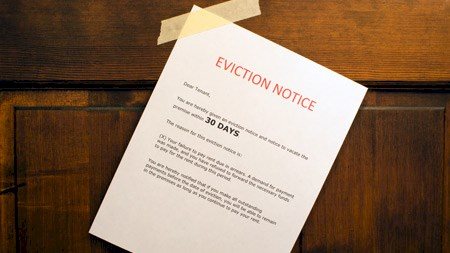Statements made by two government officials namely Rural Development and Land Reform Minister Gugile Nkwinti, and Minister of Human Settlements Lindiwe Sisulu, have been plastered all over South African newspapers recently. The first statement involved farmers being forced to hand over 50% of their farms to their farm labourers and the second concerned evictions from both state- and privately-owned property.
While it’s safe to assume that the statement regarding agricultural land has sent more than a few jitters through those who farm in SA, it also appears that private property owners have a whole new set of challenges in store.
Sisulu’s statement to the effect that all owners of land within the state and the private sector are to suspend all planned evictions until there is a clear understanding of the laws and basic human rights requirements that must be met before any eviction can take place, is deeply disturbing.
SANRAL and Lwandle
The reasons underlying this statement seem to involve the eviction by the SA National Roads Agency Limited (SANRAL) of residents living in the Lwandle informal settlement in Cape Town, who were squatting on land owned by the agency. The move started a political war between the Western Cape government and the ANC, essentially leading to each blaming the other for the eviction.
Whether the statement regarding evictions can be put down to political posturing or not, the comments by the Minister have undoubtedly added more fuel to the fire given that, in many landlord’s eyes, the law is already too lenient on those who occupy homes illegally by refusing to pay rent and vacate the property.
The legal case
Marlon Shevelew of Marlon Shevelew and Associates Inc, an international award-winning law firm, says that the statement regarding evictions has been met with considerable concern from landlords across the country.
“Unfortunately, the need to evict tenants who refuse to pay rent is growing. At this stage my company attends to 30-odd evictions a month in Western Cape alone. In all of the cases I deal with, the letter of the law is followed and all the relevant factors are considered by the courts prior to any eviction order being granted.
“Indeed, an eviction order in terms of the Prevention of Illegal Evictions (PIE) Act is only obtainable in residential rental property law when an occupant has remained in the property pursuant to a lease being cancelled, or an owner refusing to vacate after a property has been foreclosed on or if such occupant took possession of a property without any right in fact or in law. An eviction order is the result of demonstrating to the court that all factors have been considered which deem such an eviction order just and equitable,” says Shevelew.
“The call by the Minister to suspend these orders clearly and unequivocally misses the point that whilst an eviction order in the field of residential property law includes the poor and indigent, it is the self-same Act that has application to occupiers in ‘well-to-do’ areas who choose not to pay their rental on time or at all. In short, the PIE Act is applied without discrimination.”
Mitigating the loss
In Shevelew’s opinion, the Minister’s statement neglects to consider that, irrespective of the perceived injustice experienced by the occupier to be evicted, the property owner can only mitigate his or her loss if the occupier vacates and a new tenant is procured. Moreover, the fact is that an occupier being evicted is possibly unable or unwilling to pay the outstanding amounts owing to the property owner, thereby placing the owner at risk of a bond-holder foreclosing. What about the property owner who is dependent on the property to provide annuity income or capital appreciation for on-sale at a later stage?
He raises some extremely valid points. While tenants have certain rights, so too do property owners. Calling for all evictions to be halted is setting a dangerous precedent. It means that, despite homeowners losing vast sums of money due to unpaid rent and the costs associated with evicting an illegal tenant, they must now refrain from executing the order granted by the courts for fear that it transgresses the good morals of society.
Safe investment?
Former American president Franklin D Roosevelt once stated: “Real estate cannot be lost or stolen, nor can it be carried away. Purchased with common sense, paid for in full, and managed with reasonable care, it is about the safest investment in the world.”
Sadly, as things now stand in this country, there are undoubtedly landlords who have ‘lost’ their property, not because they didn’t have ‘common sense’ or manage it with ‘reasonable care’, but because those to whom they rented their homes have, in their opinion, abused the law to their full advantage.


